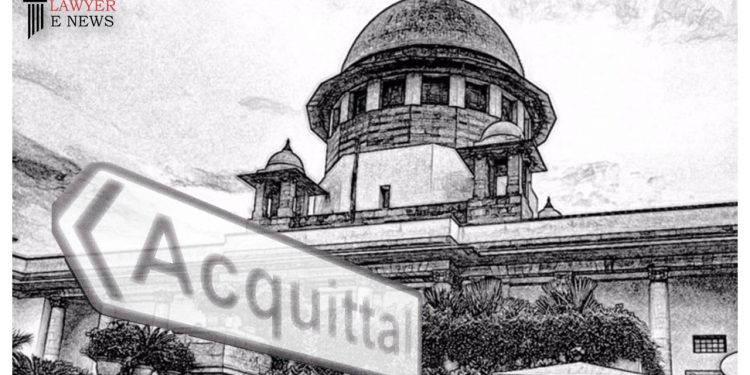-
by Admin
15 February 2026 5:01 PM



Supreme Court’s decision focused on the pivotal legal point involving the presumption of a legally enforceable debt in cheque dishonour cases under Section 138 of the Negotiable Instruments Act, 1881. This presumption arises when the issuance of a cheque and receipt of money in the respondent’s account are established. The onus then shifts to the accused to disprove the presumption. However, in this case, the Supreme Court upheld the findings of the High Court and the First Appellate Court that the respondent successfully rebutted the presumption, and the petitioner failed to establish a legally enforceable debt.
Facts and Issues of the Case: The petitioner, M/S Rajco Steel Enterprises, a partnership firm, alleged that the respondent, Kavita Saraff, issued cheques that were dishonoured due to insufficient funds, purportedly for financial assistance provided to her. The Trial Court convicted the respondent, but both the First Appellate Court and the High Court acquitted her, finding no conclusive evidence of a legally enforceable debt or liability. The Supreme Court was faced with the issue of whether these findings were perverse or lacked evidence, and if there was a substantial legal question warranting its intervention.
Burden of Proof: The court acknowledged that in cheque dishonour cases, the burden shifts to the accused once the cheque’s issuance and receipt of money are established. However, the Supreme Court found that the High Court correctly held that the respondent rebutted the presumption effectively.
Analysis of Acquittal: Interference with acquittal is limited under Article 136 of the Constitution. The court found no perversity or lack of evidence in the concurrent findings of the First Appellate Court and High Court.
Evidence of Financial Transactions: The petitioner failed to provide substantial evidence proving the existence of a legally enforceable debt. The court noted discrepancies in the petitioner’s claims and found the respondent’s defense plausible.
Applicable Legal Principles: The court considered relevant legal principles and precedents but found them adequately addressed in the judgments of the lower courts.
Decision: The Supreme Court dismissed the petitions, affirming the decisions of the High Courand the First Appellate Court. It held that there was no substantial point of law that required interference under Article 136 of the Constitution.
Date of Decision: April 9, 2024.
M/S Rajco Steel Enterprises Vs. Kavita Saraff and Another
